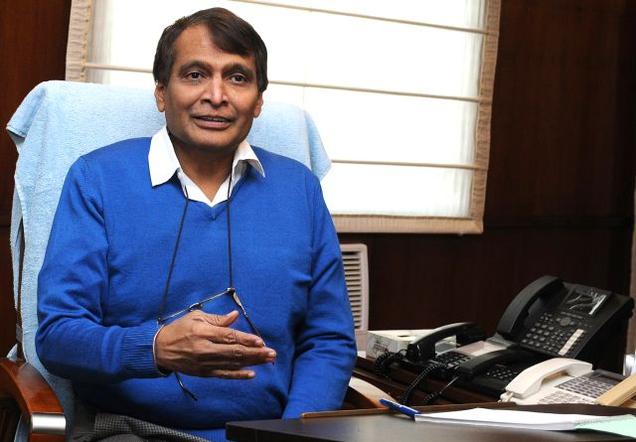BUENOS AIRES: Commerce and Industry Minister Suresh Prabhu said this was probably the first time in recent history that India was not being blamed for the collapse of talks at the ministerial meeting of the World Trade Organization (WTO).
“We came here with an open mind” but things did not move because of the adamant attitude of some members, Prabhu told reporters here.
The talks at the 11th ministerial conference of the WTO collapsed with the US going back on the commitment made by it along with other member countries to find a permanent solution to the public food stockpile issue.
Following the breakdown of talks, there was no ministerial declaration at the end of the conference, though chair and Argentinean Minister Susana Malcorra made a statement highlighting the developments.
“This is (for the) first time that India is not being blamed…We are definitely not going back as villains,” Prabhu said, adding the country has not lost anything but gained a lot, especially in terms of the goodwill of the developing nations.
At previous ministerial meetings, India was often blamed for adopting an uncompromising and stern attitude which thwarted attempts of member nations to reach consensus on key issues.
The minister said that during the course of the 11th ministerial conference, he had over two dozen bilateral meetings during which he explained the position of India as well the developing nations on different issues.
Observing that trade negotiations are always difficult, the minister said “we knew that nothing was going to happen because of the way the US administrating was moving… questioning the efficiency of the global trading system.”
As regards the food security issue, the minister said that India was keen to have a permanent solution which ought to have been better than the ‘Peace Clause’ and led the battle for it.
However, talks reached a dead end after Assistant US Trade Representative Sharon Bomer Lauritsen in a small group meeting said that permanent solution to the food stockholding issue was not acceptable to America.
The minister said that US objections were not directed against India but some other country, probably China.
Under the global trade norms, a WTO member country’s food subsidy bill should not breach the limit of 10 per cent of the value of production based on the reference price of 1986-88.
Apprehending that full implementation of food security programme may result in breach of the WTO cap, India has been seeking amendments in the formula to calculate the food subsidy cap.
As an interim measure, the WTO members at the Bali ministerial meeting in December 2013 had agreed to put in place a mechanism popularly called the Peace Clause and had committed to negotiate an agreement for permanent solution at the 11th ministerial meeting at Buenos Aires.
However, as no agreement was reached at MC 11, Peace Clause will continue and also the existing mandate to find a permanent solution.
During the ministerial, Prabhu said, India continued to press for reduction of farm subsidies by the developed countries and resisted inclusion of new issues on the negotiating table lest it should dilute the commitment to complete the existing agenda.
The minister further said there is life after Buenos Aires and the WTO will continue to thrive as a transparent multilateral trading organisation for the good of the world. (AGENCIES)


